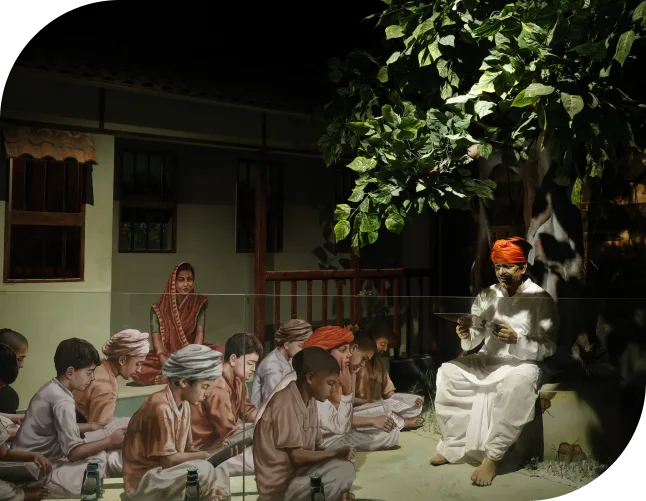
Born in Mandvi, Gujarat, in 1857, Shri Shyamji Krishna Varma emerged as a brilliant scholar, barrister, and revolutionary. His quest for knowledge led him to study at the University of Oxford, where he became a strong advocate for India’s independence. Influenced by Swami Dayanand Saraswati’s teachings on nationalism, Shyamji adopted the principles of self-rule (Swaraj) and began his relentless fight against British oppression.
His early career was marked by impressive accomplishments—he served as the Diwan (chief minister) in Indian princely states, but disillusionment with British colonial policies propelled him into the role of a freedom fighter. Shyamji realized that the fight for freedom needed a global stage, and so he took his battle across borders, shaping the course of history from afar.
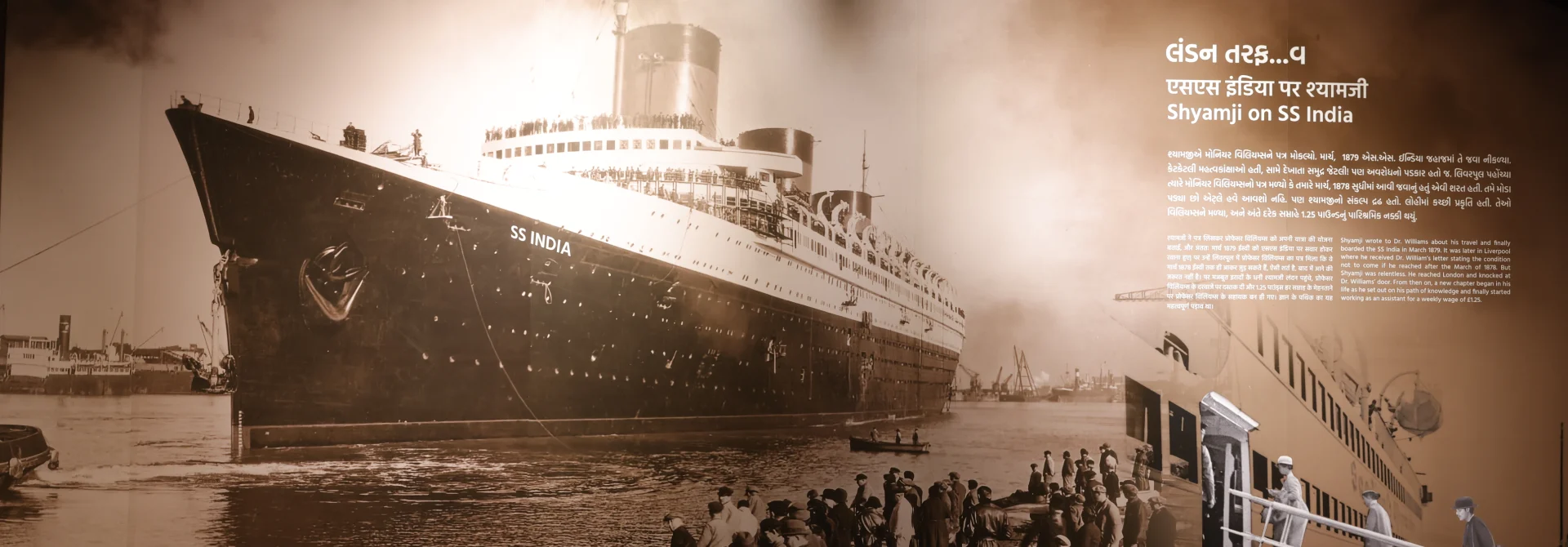
Shyamji’s courage wasn’t just about creating a revolt —it was in the power of his ideas. Moving to London in the early 1900s, he established India House, a hub for Indian students and revolutionaries. It became the epicenter of anti-colonial activities, nurturing young patriots like Veer Savarkar and Madame Bhikaji Cama. Alongside this, he launched the daring publication The Indian Sociologist, a journal that criticized British policies and advocated for India’s complete independence.
Though banned by British authorities, the journal circulated widely and became the voice of resistance, calling for action, not just protests.Shyamji’s involvement in Indian politics extended to founding the Indian Home Rule Society in 1905, which aimed at securing self-rule for India. His efforts were not without personal sacrifice. The British government blacklisted him, and his movements were constantly monitored, yet he remained undeterred.



Shyamji’s radical stance eventually led to his expulsion from England, forcing him into exile in Geneva. But even in exile, his voice did not falter. He continued publishing The Indian Sociologist, using his wealth and influence to support students and activists who shared his vision of a free India. His words inspired a generation of freedom fighters who would go on to lead India toward independence.
While in Geneva, Shyamji financed the education of many Indian students in Europe, helping shape the intellectual foundation of India’s independence movement. His house became a symbol of hope, where the seeds of revolution continued to bloom despite being miles away from the land he longed for.

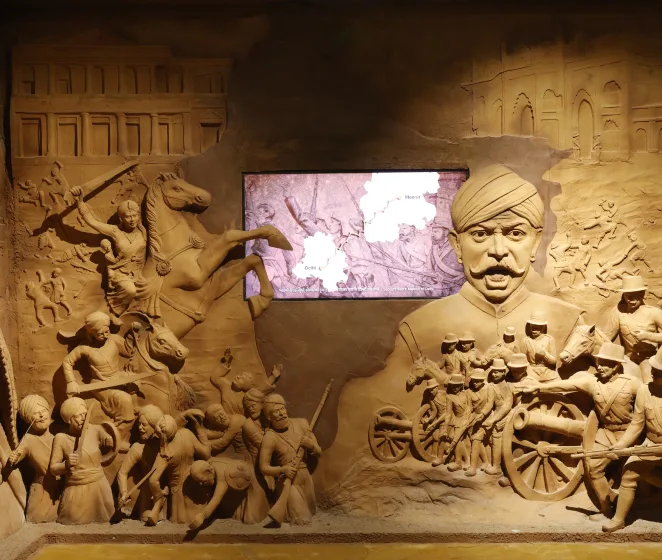
Shyamji Krishna Varma’s relentless support for the revolutionary cause in India was instrumental in mentoring some of the most iconic freedom fighters. His role in India House and its network fostered bravery among young Indian nationalists, inspiring figures like Bhagat Singh. The British feared his influence, labeling him a dangerous dissident. Despite the growing pressure, Shyamji remained a guiding force for Indian revolutionaries across Europe.

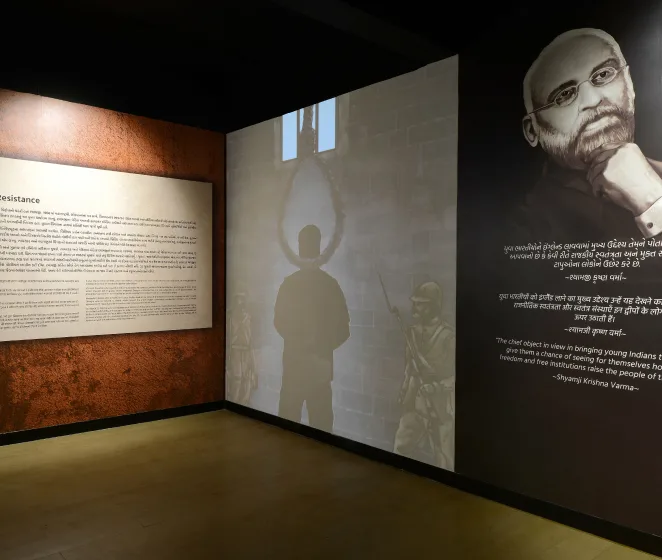
As Shyamji grew older, his thoughts remained fixed on his homeland. His final wish was deeply symbolic: he wanted his ashes to be returned to a free India. When he passed away in 1930, his ashes were kept in Geneva, waiting for the day his beloved country would achieve the freedom he had fought for all his life. This poignant decision kept his legacy alive even after death, symbolizing the unfinished business of India’s independence.

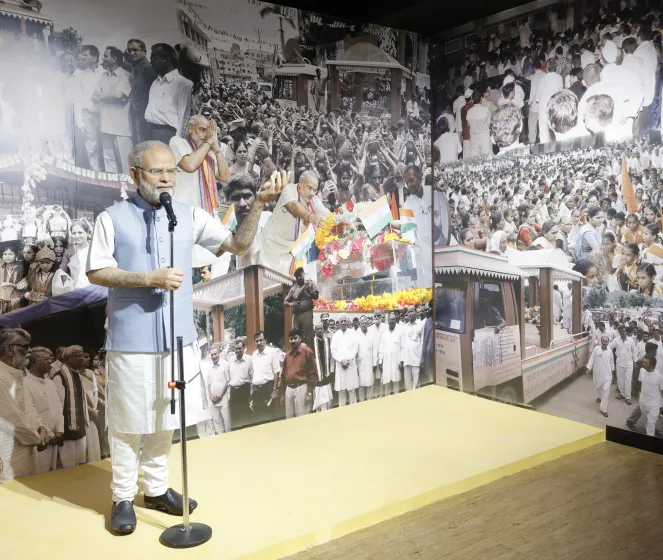
In 2003, 56 years after India’s independence & 73 years since the demise of Shri Shyamji Krishna Varma, Shri Narendra Modi, the then Chief Minister of Gujarat, brought Shri Shyamji Krishna Varma’s ashes back to India. This event marked the fulfillment of his last wish and was celebrated as the Viranjali Yatra, which carried his ashes across 17 districts in Gujarat, before finally laying them to rest in his hometown, Mandvi. This emotional homecoming cemented Shri Shyamji Krishna Varma’s place in history, as his dream of coming home to a free India was now complete.
